guest post courtesy of Christian Alsworth, Bullymax.com . The views and opinions expressed in this article are those of the guest author and do not necessarily represent the views of Val Heart & Heart Communications Enterprises Inc.
You got a dog for the first time? Congratulations! You’ve found a reliable and wonderful new friend… unless you make any of these dog parent mistakes…
Dogs are man’s best friend, and they stick close to you forever, but you are going to need a First-Time Dog Owner Guide to help avoid making serious and costly mistakes with your pup.
In this new phase of life with your canine companion, it’s natural to be a little worried. The good news is, we have got you covered!
Here is an informative piece on how to take care of your dog and what to expect in his various stages of life.
Adjusting to a New Home
Your dog, especially in his infant stage, would need some time to settle into his new space. This period can take weeks, but you have a huge role to play if you want your pet to settle in faster. First, you have to be patient.
Depending on your dog’s breed, he may be quiet in his first few days in his new space. If your dog is from a shelter, he would need more time to adjust and settle into his new space. For most new pets, it takes a few weeks to fully bring out their personality. Thus, you have to be patient and train your pet to love his new space. You should have everything handy and develop the right routine to train your pet.
Caring for a Puppy
Puppies need constant care and attention. They have unique food formulas and need specialized training, reliable pet health insurance, vaccinations, and care. It is important to set firm boundaries at this stage. What is cute in a puppy is not in a dog. Those love bites while teething will turn into aggressive play when they grow up. And potty training takes longer than one may think. Sometimes, it can be overwhelming, and it feels like having a baby around. But it is very rewarding as you get to bond with your pet at that early age.
To care for a puppy, you will have to carry out proper research on your pet’s breed type. It would help point you towards the right direction on how best to take care of your pet. Some idiosyncrasies may pop up (such as having a louder breed) that you have to take into account.
Other common problems for a new dog owner are the separation anxiety that occurs and behavioral problems if not addressed early. More on this in Behavioral Problems.
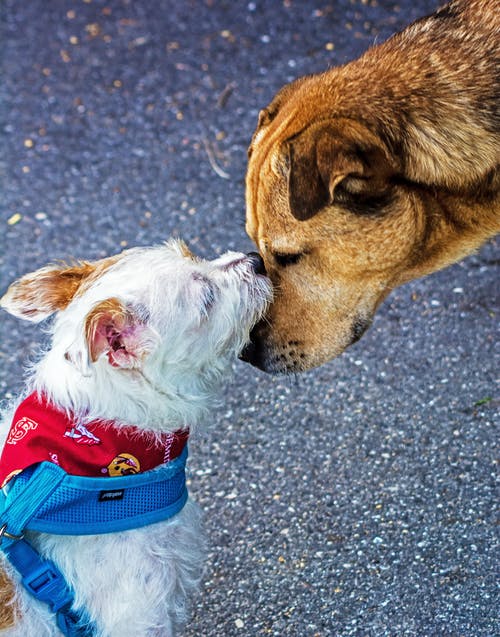
Socialization
When your puppy is first taken home, it is important to cocoon them in the house. This period lets them know where home is and gives them some stability in a time of transition. After a few weeks, introduce them to other dogs and your friends. Socialization early in life is important to prevent your dog “guarding” you in the future. Good ways to socialize often are trips to the dog park, hikes and puppy play dates. Although pricey, dropping your dog off at doggy daycare a few times a week when you go to work is a good option as well.
If you are introducing a new pooch to the pack, give them their own space in the house. The introduction should take place in neutral territory, like a park, however it is important for your first dog to know that the newcomer has their territory as well (i.e. their own toys, bed, food bowl). The early stages of introduction are the most important, so do it slowly and be careful letting them play off-leash too early. Monitor the dogs closely for the first few weeks to catch bad habits.
Dog’s Nutritional Needs
Dogs have basic nutritional needs throughout the different stages of their lifetime. Your pet will need the right nutrition, shelter, physical and social activity to lead a healthy lifestyle.
Once you meet all these requirements, you will have a happy dog. The basics needs change with the age of your pet. Puppies and growing dogs need more playtimes to help them stay active and reduce anxiety.
As your dog gets older they may need supplements to get all their nutrients and keep the energy up. Thus, they need high-calorie dog food to provide all the liveliness for their daily playtime. Old dogs have a harder time retaining weight, so be on the lookout for times when you should supplement their meals with more protein or carb heavy meals. They also need special attention so as to reduce their anxiety in old age. Tools like a bigger dog crate or an orthopedic dog bed will help them manage bone health and other aging health issues.
The Importance of a Vet
It is important to get a veterinarian for your dog’s lifetime. Having the same vet will ensure that your dog’s patterns are known, and a history of their medical visits are documented in one place. After getting all the shots and spaying/neutering your pet, take them to the vet once a year for a regular checkup. Be sure to visit if your four-legged friend is having trouble with bowel movements, is not moving very much through the day, or any other irregularity. Best to be safe than sorry!
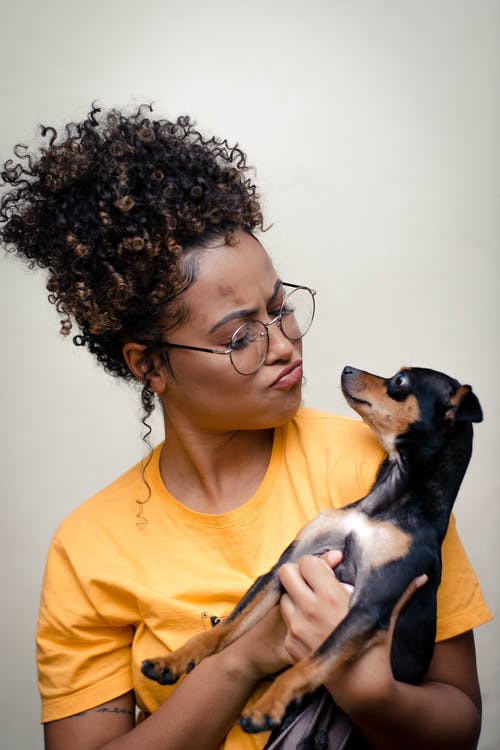
Managing Bad Behavioral Problems
Face it. Your dog is going to pick up bad habits as they grow older. Your pet may develop minor issues like bad chewing habits and excessive barking. There are more severe concerns like anxiety and aggressiveness. This is especially important to work out in the beginning of your relationship because it will form trust. This is especially apparent in rescue dogs. Again, it takes a while for their personality to show and even longer to earn their full trust. Just remember that a handy training book, tasty rewards and a whole lot of patience will help.
Some helpful training tips for your furry friend are:
- To prevent separation anxiety
-
- Crate train your puppy
- Keep your routine the same
- Spend time away from your puppy
- To prevent biting
- When puppies bite, playtime is over
- Hold a treat and walk around with your puppy at your feet
- Give your puppy chew toys
- To prevent fence guarding
- Call your dog once, if they do not respond play with their toys by yourself until they come
- Do not use their name as a punishment
- Bring your neighbors over
- Socialize your puppy from a very young age
- Let your guests feed your dog
- To prevent anxiety
- Exercise your dog often
- Introduce them to new people by allowing them to feed your dog (this will be a slow process)
- Crate train your puppy
- Have a solid routine for your dog
Grooming Your Dog
Grooming is an essential part of caring for a dog. Your dog’s coat and skin health are as important as his nutrition. Remember, your dog’s nutrition will play a big role in their skin health. Thus, you have to use the right shampoo and dog brush to ensure that their coat stays clean and shiny all the time. Depending on the breed type, your dog’s grooming patterns will be different. Dogs with long coats or undercoats should be professionally groomed once every other month to prevent knotting and overheating. Be sure to get the right brush as it makes grooming fun for both you and your pet.
Learn to Speak Your Dog’s Language
Just as important as knowing how to take great care of your canine friend, it’s also important to learn to communicate with dogs. To help you with that, download my FREE Ebook: Hidden Secrets to Communicating with Pets HERE.
Or dive into the complete Talking With Animals program with my Beginning Core Foundations Animal Communication Course.
Maybe you’ve already begun your journey in Animal Communication. If so, it’s time to go to the next level.
Find out how to access the Masterclass here
All our great courses are fully guaranteed, so there’s no risk to taking the next step.
Be sure to leave your comment below!
Congratulations on finding your new best friend! Just keep this First-Time Dog Owner Guide handy and you’ve got this!

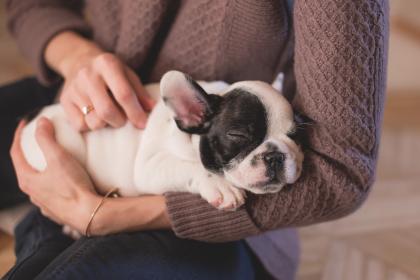
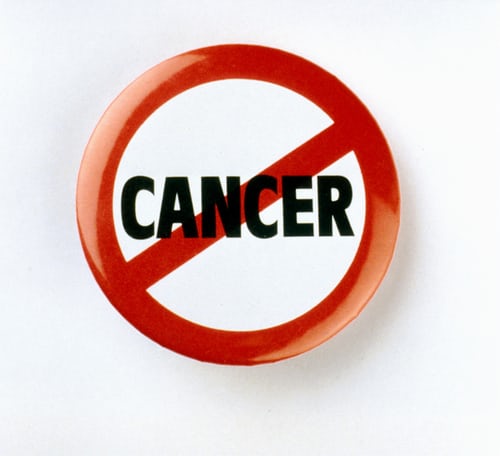

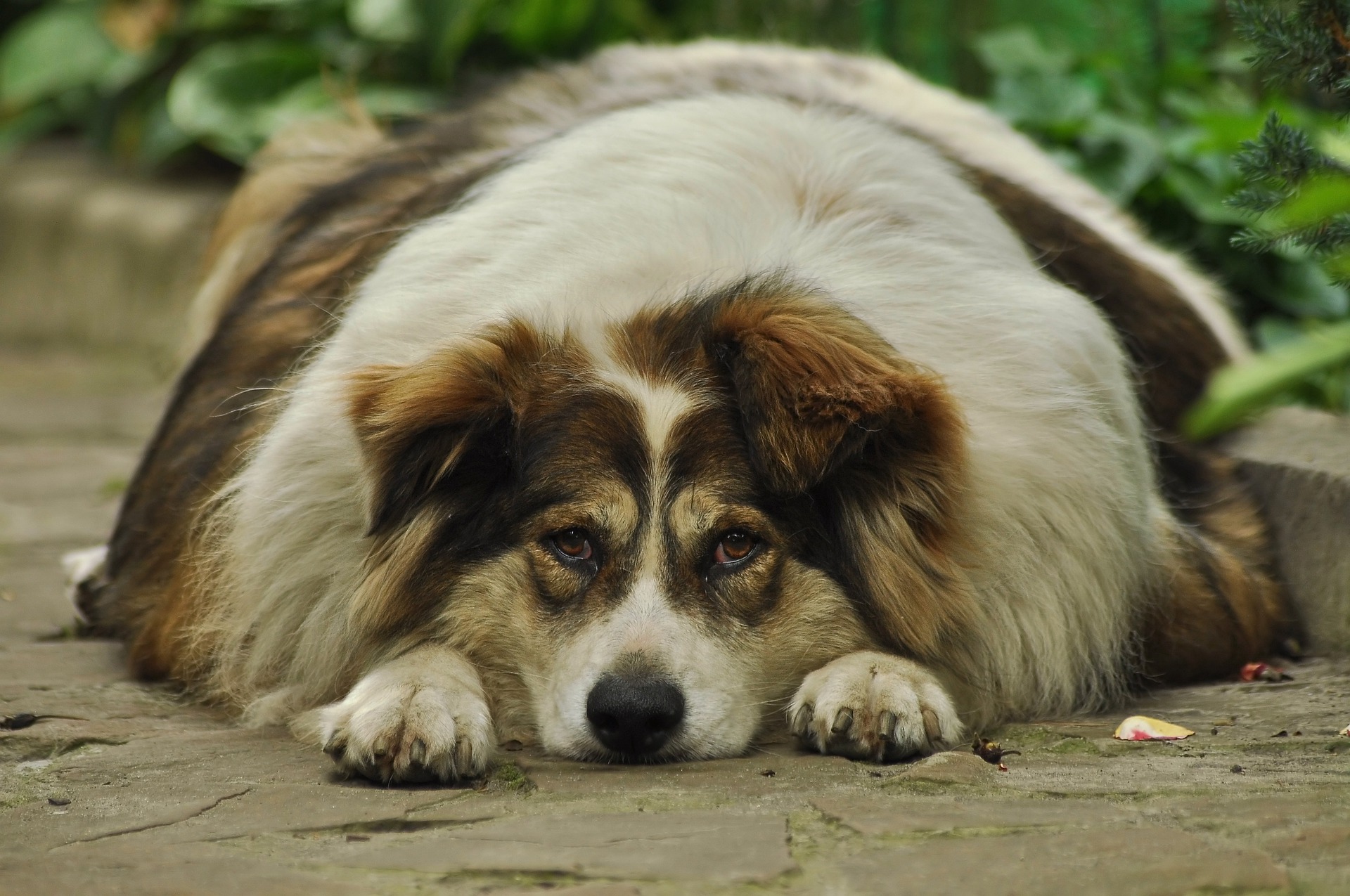

Leave a Reply